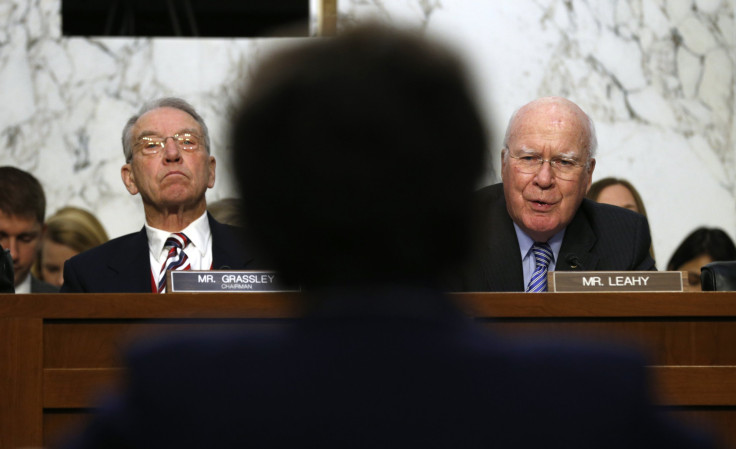Voting Rights Act 2015: Leadership Conference Blasts Senator Chuck Grassley For 'Irresponsible' Comments On Historic Law

The Leadership Conference for Civil and Human Rights thinks Sen. Chuck Grassley, R-Iowa, should bone up on his understanding of the Voting Rights Act of 1965. Wade Henderson, president of the conference, denounced the senator Thursday for comments he made this week. Grassley characterized the historic civil rights legislation as a measure intended to increase minority turnout, rather than to stop discrimination in states with a history of suppressing voters.
Grassley is chairman of the Senate Judiciary Committee, which has jurisdiction over the VRA.
Henderson and other civil rights groups have been working with Congress to pass the Voting Rights Act of 2015, a bill that would fix a section of the VRA that the Supreme Court struck down in 2013. Justices ruled that the law needed updating, reasoning that race-based voter suppression in Southern states had been curbed in the 50 years since the VRA was enacted.
"It depends on what you want to fix," Grassley said during an event at the National Press Club Monday, when asked if he would work with members of Congress who want new protections. "If you want to fix more minorities voting, more minorities are already voting. It seems to me it's got to be different than the original intent of the Voting Rights Act because, in the last 50 years, it's made great progress.”
Henderson said Grassley's remarks represent a betrayal of his duties to protect voters from discrimination. “It’s irresponsible for Chairman Grassley to fundamentally mischaracterize the intent of the Voting Rights Act,” Henderson said. “To insinuate that the VRA was designed to drive up vote totals in minority communities shows real disregard for the voting discrimination that inspired the nation to adopt the law and persists today in the wake of the [Supreme Court] decision.”
Grassley is among several Senate Republicans who don’t see urgency in restoring the VRA. Since the Supreme Court's Shelby v. Holder decision, Southern states that were required under VRA regulations to get federal "preclearance" before changing their voting laws have passed laws that make voting more difficult for some. So-called voter ID laws were enacted ahead of the 2014 midterm elections, although the Department of Justice has successfully challenged some of them in court.
Henderson said there has been “a resurgence of laws” that limit early voting and dilute minority voting strength through redistricting. In the 50 years since the Rev. Martin Luther King Jr. led the voting rights march in Selma, Alabama -- whose anniversary the president and lawmakers celebrated last month -- the will to fix the VRA doesn’t appear to exist in the Senate. A bill with bipartisan sponsorship in House has been introduced, according to a report by the Huffington Post.
Sen. Patrick Leahy, D-Vt., Grassley's predecessor as Judiciary Committee chairman and author of a 2014 Voting Rights Act bill in the Senate, told the Huffington Post that the Supreme Court had put the VRA restoration ball in Congress’ court. “In Shelby County, [the 2013 ruling,] Chief Justice Roberts noted in the majority opinion that 'voting discrimination still exists; no one doubts that,' and explicitly said that Congress had the authority to update the law based on current conditions,” Leahy said in a statement. “That is clearly what Congress should be doing.”
© Copyright IBTimes 2024. All rights reserved.












